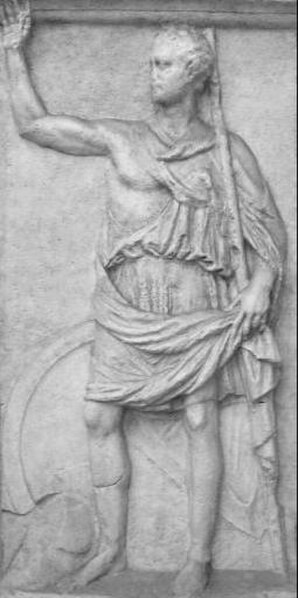The Achaean War of 146 BC was fought between the Roman Republic and the Greek Achaean League, an alliance of Achaean and other Peloponnesian states in ancient Greece. It was the final stage of Rome's conquest of mainland Greece, taking place just after the Fourth Macedonian War.
The last day of Corinth, Tony Robert-Fleury, 1870
One of the hostages was the future historian Polybius of Megalopolis; he would become an important source for the Hellenistic Period and the Punic Wars
Extent of the Achaean League on the eve of the war, showing the invasion routes of Mummius and Metellus
The Sack of Corinth, by Thomas Allom
The Achaean League was a Hellenistic-era confederation of Greek city-states on the northern and central Peloponnese. The league was named after the region of Achaea in the northwestern Peloponnese, which formed its original core. The first league was formed in the fifth century BC. The second Achaean League was established in 280 BC. As a rival of Antigonid Macedon and an ally of the Roman Republic, the league played a major role in the expansion of Rome into Greece. This process eventually led to the League's conquest and dissolution by the Romans in 146 BC.
Achaean League
Scene of the Battle of Corinth (146 BC): last day before the Roman legions looted and burned the Greek city of Corinth. The last day on Corinth, Tony Robert-Fleury, 1870





